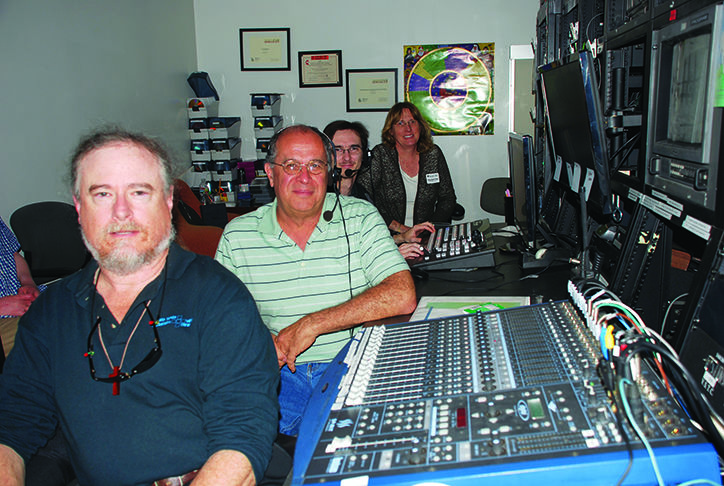The U.S. Senate should support a bill that preserves public access television channels and the programming they carry, the chairman of the Committee on Communications of the U.S. Conference of Catholic Bishops declared last week.
Bishop John Wester of Salt Lake City urged support for the Community Access Preservation Act (S. 1789), which would provide “reliable funding” to Public, Educational and Government (PEG) channels, in a Dec. 11 letter.
Noting that PEG channels are local channels used by religious organizations, schools, local government and community organizations which offer free or low cost outlets for programming, Bishop Wester pointed out in his letter that these channels increase the diversity of voices presented, promoting broader civic engagement as well as an avenue for noncommercial religious programming.
Sens. Tammy Baldwin (D-Wis.) and Ed Markey (D-Mass.), co-sponsors of the bill, argue that PEG channels are necessary in the current era of media consolidation and at a time when state video franchising laws have “devastated” PEG funding. Eleven states --- Arkansas, Florida, Georgia, Idaho, Iowa, Kansas, Missouri, Nevada, Ohio, South Carolina and Wisconsin --- have lost all PEG funding.
In California, many public-access television studios have closed, including those in 17 cities within the L.A. Archdiocese (12 facilities alone in Los Angeles) and 13 cities in the Diocese of Orange. According to Katherine Grincewich, USCCB’s associate general counsel, it can be “easily” assumed that every public access station closed had about 30 percent or more religious programming.
“In a time when religious programming faces increasing challenges to its voice being given an equal platform, PEG channels offer a venue for these programs to be accessed,” wrote Bishop Wester. “This is of particular importance for the elderly, disabled or homebound who long to remain connected to their religious communities but are unable to take part in their religious or community activities.”
Holy Family Church’s television ministry in South Pasadena has been directly affected by local PEG channel closures as a result of California’s passage of AB2987 (“The Digital Infrastructure and Video Competition Act of 2006”) which changed the laws by which cable TV companies operate, no longer guaranteeing funding of PEG channels.
“About five years ago, we lost two of three main venues (PEG channels), including in South Pasadena,” said Frank Ponnet, Holy Family’s director of liturgy. “We lost all of those people who could be viewing” the Mass, which is now only available on one local channel or via live-streaming for people with Internet access.
In Long Beach, city efforts have been successful in reopening PEG channels, but they have no operating funds as current law prohibits using funding for staff, Grincewich pointed out.
“The CAP Act will certainly go a long way if it’s passed --- it would be very essential to the protection and growth of PEG access facilities,” said Jerry Lee, executive director of the Community Media Access Collaborative established just 18 months ago in Fresno.
Handling all three local PEG channels (public, educational and government), CMAC has run some church programming and partnered on projects with KNXT (Channel 49 in Fresno), the nation’s only full-power, 24-hour a day Catholic television station run by the Diocese of Fresno. (Other Catholic dioceses around the country provide programming to cable or closed circuit systems.)
Lee notes that subtle changes in the CAP Act would allow PEG channels to use revenue where needed, such as operating expenses. Also, according to a recent article in “Multichannel News,” the CAP Act reaffirms that cable operators have to deliver PEG channels at no additional cost to subscribers, that they have the same quality and accessibility as local TV stations, and that cable operators continue to support PEG with revenue as well as channels, up to 2 percent of gross revenue or their historical support, whichever is more.
“Cable companies are not crazy about being forced to provide public access, but they’re not paying out of their pocket --- they’re charging it to their customers,” Lee pointed out.
“The death of public access would be terrible, and it’s proven to be somewhat in danger,” Lee added. “I have my fingers crossed. Everybody concerned about it should contact their congressperson and tell them how they feel.”
Said Fresno Catholic television spokesperson Randall Reed: “While KNXT, as a full power television station, isn’t directly affected by the CAP Act or PEG access, there are significant benefits to having more media resources available to the community. The CAP Act would certainly help to expand resources here in the Central Valley and across the state.”
USCCB contributed to this story.

